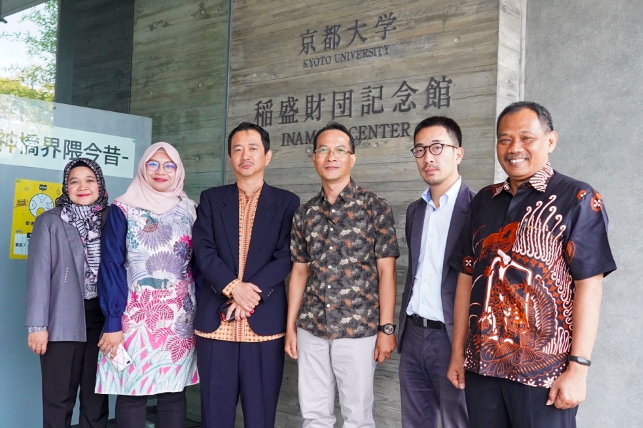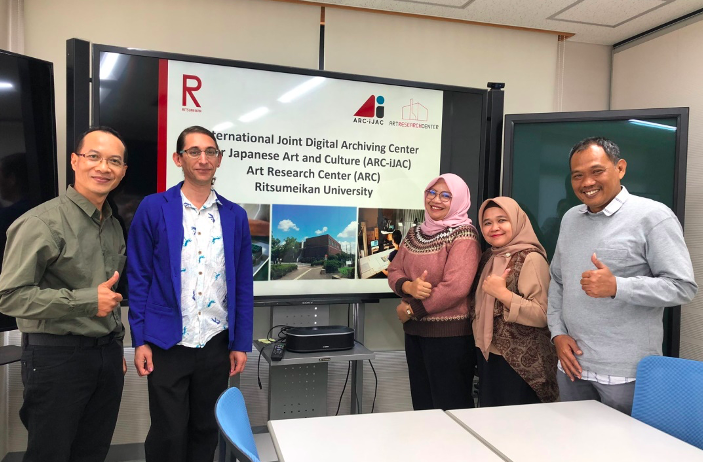On November 6, 2023, the Faculty of Cultural Studies at Universitas Brawijaya (FCS UB) conducted a visit to Kyoto University in Japan. The meeting aimed to strengthen cooperation between FCS UB and the Center for Southeast Asian Studies (CSEAS) at Kyoto University.
One key point of this meeting was to discuss the implementation of existing cooperation between FCS UB and CSEAS, including the Research Fellowship program and international community service. The outcomes of this meeting included the signing of the Implementation of Agreement and planning for further cooperation. Moreover, future cooperation plans involve various activities such as visiting fellowships, joint research, guest lecturers, and international seminars.

On the other hand, on November 9, 2023, Ritsumeikan University also welcomed a visit from FCS UB to establish closer cooperation. Ritsumeikan University discussed various collaborative initiatives, including joint research, student exchanges, and guest lecturer and professor programs. Participants from FCS UB had the opportunity to directly observe the digitization process carried out at Ritsumeikan University. They saw production and photography spaces where historical works were restored and transformed into digital forms, including the use of advanced technology to ensure accuracy and quality.

The results of this visit indicate that the digitization process requires strong infrastructure, careful planning, and the involvement of various parties from different fields of expertise. The digitization results were also shown in the form of online games and virtual museums, allowing these works to be accessed and enjoyed widely.
The visit to Kyoto University and Ritsumeikan University emphasizes the importance of international cooperation in research development and cultural advancement. From these meetings, it is hoped that sustainable cooperation will emerge, positively impacting the development of science and culture, and providing input for the next curriculum, especially the addition of courses related to digital humanities.
(zawa)